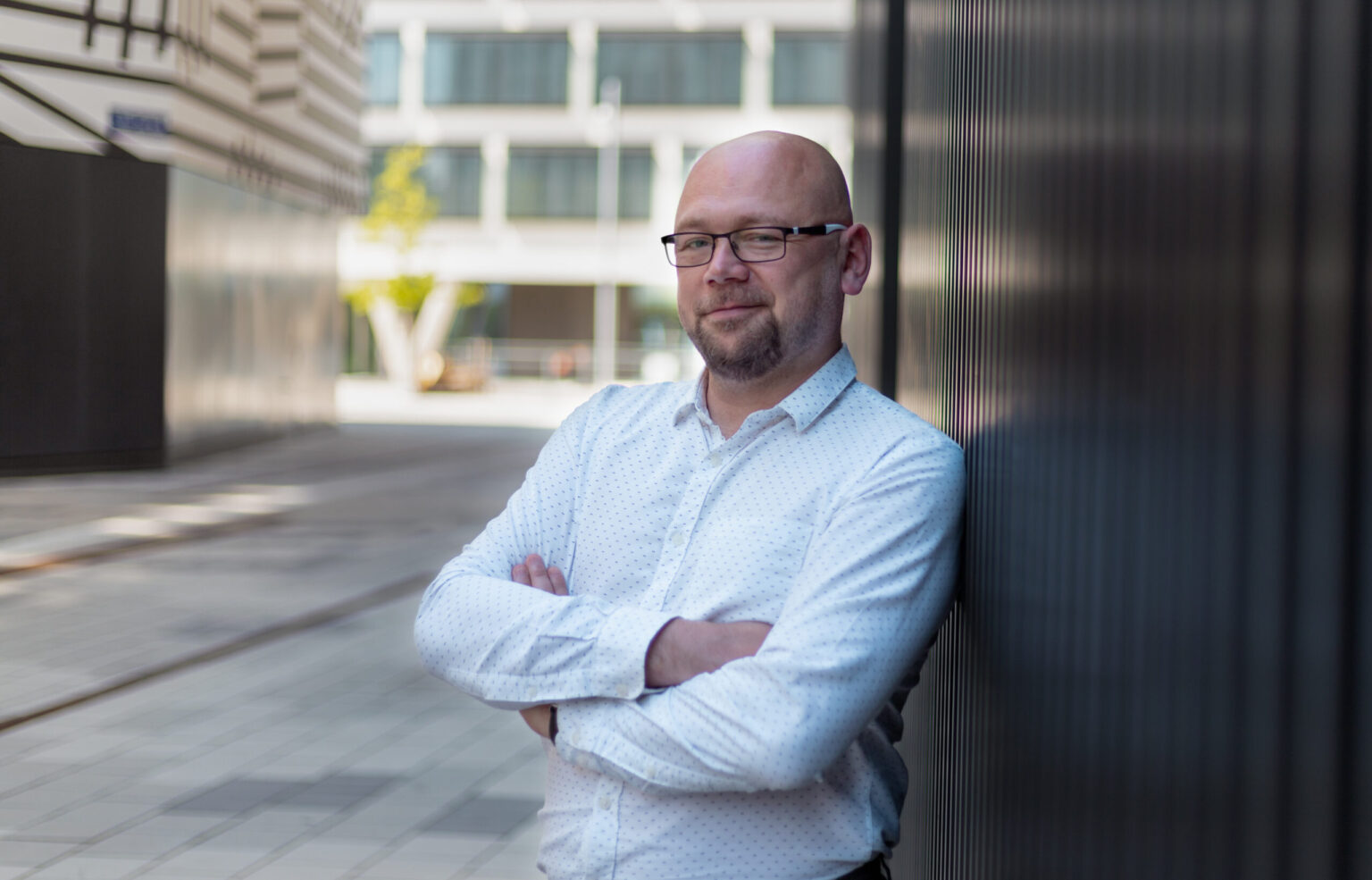“That magic that a good team creates is lost when we only use cameras and laptops.” – says Krzysztof Raś of Bitpanda when asked about the remote working trend. Working in IT has offered attractive conditions for professionals for many years now, but it is not free of challenges from recruitment, as Bitpanda’s VP tells us.
1 Remote working has gained importance over the past year, including in IT. Do you think this trend should continue? Which organisations can afford this form of working?
Personally, I have always been and continue to be a proponent of a working model where the team works together from the office for part of the time, i.e. what we call today the hybrid model. I believe that by working only remotely it is extremely difficult to maintain the integrity of the team and the community of vision for the development of the company. Nothing can replace face-to-face contact in terms of building a cohesive company culture, which plays a key role, especially for a company growing at a rate like Bitpanda, which can be twice as big at the end of the year as it was at the beginning. There is a common perception that the more innovative a company is, the sooner it can afford to work fully remotely. However, my experience tells me that work on innovative and high-tech projects is best done in teams. Nowadays, we have access to many tools to facilitate remote ‘brainstorming’. However, this is no substitute for the creative process of exchanging thoughts and emotions. That magic that a good team creates is lost when we only use cameras and laptops.
2 With the shortage of employees in the IT labour market, isn’t the lack of remote or hybrid working another barrier to finding a good specialist?
To begin with, I would like to emphasise that although we see many advantages of on-premises working in Bitpanda, this does not mean that we do not know how to find our way in the new reality. The truth is that even before the pandemic, we had mechanisms and tools implemented to enable remote working. We are a classic ‘disruptor’ – as far as one can speak of such. People representing dozens of nationalities work for the company and they do so from locations all over Europe, not just where we have offices. Throughout the pandemic restrictions, we worked from home. Since the opening of the Technology and Innovation Centre in Poland, we have been using a hybrid model: the office in Krakow remains open for those who want or need to be there due to the lack of conditions to work effectively at home, while leaving it up to us to decide when and where we work from. We are committed to meeting in person at least once a week. The complete lack of the possibility to work remotely or hybrid could undoubtedly be a barrier for a certain proportion of candidates today. However, it is difficult to answer this question unequivocally for the market as a whole. Contrary to popular opinion, many IT professionals prefer stationary work. In my opinion, there are many other factors that definitely have a greater impact on the perception of an organisation as attractive in the eyes of candidates. Recent research indicates that a strong organisational culture and a relaxed working atmosphere are increasingly important for IT professionals. And any manager working in the industry knows that good professionals are found more easily when they can be offered commitment to an exciting project and a high degree of autonomy in their work.
3 What are the biggest challenges for recruitment in IT in Poland?
The biggest challenge is undoubtedly the huge competition. Polish programmers in recent years have gained a reputation as some of the best specialists in the world. In addition, the now widely accepted model of remote working has meant that the best talent has to compete with companies from all over the world. We, too, are open to attracting specialists from other countries. In such a situation, experience in building teams is essential. After many years in the industry, I am aware of the changes in the market, what arguments appeal to candidates and, above all, where to look for them. It is also important to note that you cannot build a top-notch technology hub remotely. You need someone on the ground who has experience, knows the environment and has a network of contacts. And that’s how I was brought on board with the mission to build Bitpanda’s office from scratch.
4 What do you think about the so-called pitchforks? Are companies still reluctant to state the possible salary range already in the advertisement?
In Poland, I don’t think there is such a custom yet, although you can undoubtedly see an increase in the number of job advertisements with a specified salary range in recent years. However, it seems to me that everyone in the IT market knows what the rates are for specific positions. The salary of course continues to be the most important factor when choosing a job, but in recent years there has been a kind of generational change. It is increasingly important what product one works on and in which organisation. A significant proportion of professionals choose a particular company because of their fascination with its services or their desire to work in a particular industry. The culture of the organisation and the very reason for its existence, something that used to be called a mission statement, has become very important. The Bitpanda team is increasingly being approached by people who, like us, want to rediscover the world of finance and make it accessible to everyone.
5 Self-employment or employment contract? Which form of employment in IT do you think is more beneficial?
It depends. I think a lot depends on the individual approach of the employee and the relationship they have with the company. At Bitpanda, the vast majority of our employees are employed on an employment contract. We want them to feel that they are an integral part of the team, and this form of employment clearly indicates this. We believe that an inclusive culture and a focus around mutually shared values, fosters growth and innovation. The employment contract also means that we are able to offer internal company stock options (Phantom Stock Options), which are still not very popular on the Polish market, and additionally reward employees in the form of various benefits. For example, we organised anonymous online mental health support during the pandemic and recently gave all employees, including interns and freelancers, a week of additional paid leave.










